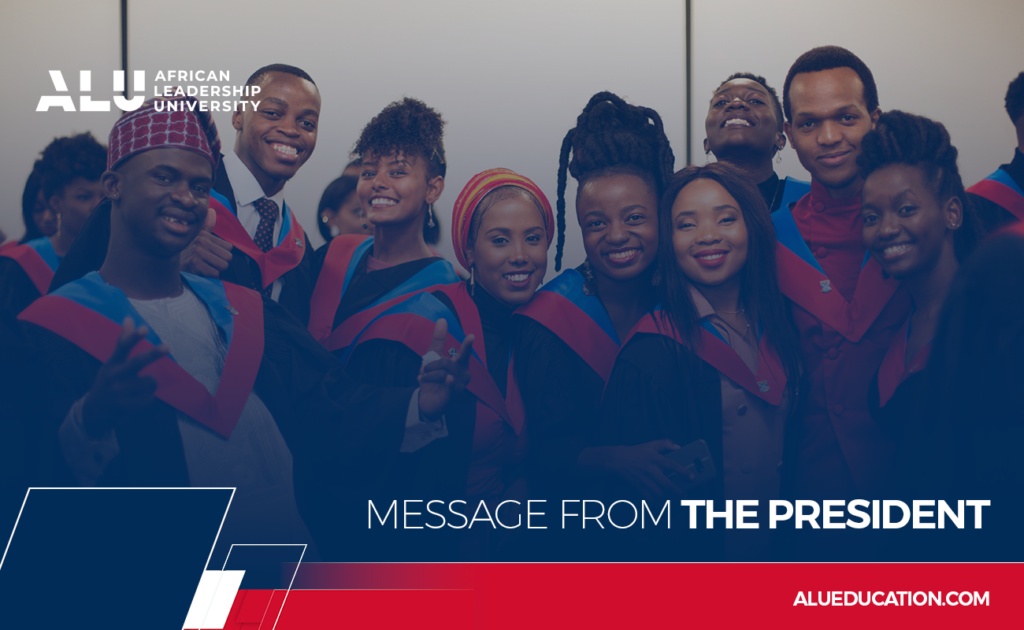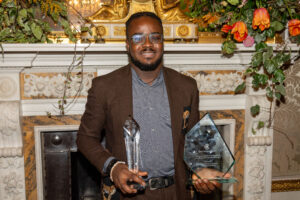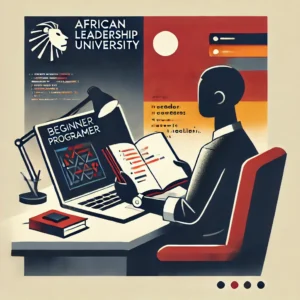Dear ALU Community,
I debated with myself how to weigh in most constructively on the crisis unfolding on American streets. It is geographically far from us — a murder on a sidewalk in Minneapolis is a tragedy, but seems hardly the news that would consume anyone in Rwanda or Mauritius. But this was more – it was a senseless act of brutality committed by none other than a police officer, on a busy street, in broad daylight.
As fellow humans, it is impossible not to feel a gut-wrenching sense of loss and waste. As an African-born, American-naturalized black man with immediate family in the USA and with my own share of uncomfortable experiences in the country, it is hard for me to not feel strongly or have a perspective to share. For an institution whose students regularly visit the USA to participate in events of various types, America’s persistent struggle with a legacy of bigotry and injustice raises some understandable questions.
The killing of George Floyd is not a one-off tragedy. It is sadly normal in the strange series of violent and fatal encounters that have an insatiable appetite for black people and black lives.
My fellow alumnus of Morehouse College, Dr. Martin Luther King Jr. wrote “Injustice anywhere is a threat to justice everywhere. We are caught in an inescapable network of mutuality, tied in a single garment of destiny. Whatever affects one directly, affects all indirectly.”
Dr. King’s words are evergreen truth. As a community of Africans, we share the anguish of 40 million African Americans. I know from my American experience the pain, fear and stress of the constant affronts, and from my international travels how much this same bigotry towards blacks, including and especially Africans, is franchised out across the globe.
As a leadership development university, we are inescapably linked to the obligation to find solutions to the world’s biggest challenges — including and especially racism.
Racism is a disease that seeks to strip someone of their humanity, but it is an infection that afflicts the racist just as much because it compromises their own humanity. At the same time, there are many other isms that discriminate against and hurt the human vitality of others, and they also have no place in a civilised society, in America or elsewhere. They certainly have no place in Africa where our imperative to change the trajectory of the continent does not afford us the luxury or misjudgement of underutilizing our vast human potential. It is also plain and simple – wrong!
At African Leadership University, we are creating consequential leaders seeking a life of significance and impact on the continent and around the world.
As consequential leaders, we will make decisions that will have an impact on society, perhaps for generations to come. As leaders, we will have the ability to challenge systems that were designed to disenfranchise or muzzle others or do more harm than good. As leaders, we will be called upon by fate to be just and fair in moments that demand it. As leaders, we will have to lead ourselves, even more than we will be called upon to lead others. As leaders, we will be expected to follow paths less travelled and be tested by our own adherence to consistent principles and beliefs. As leaders, we will find ourselves in positions where our example will make a significant difference — and be the significant difference.
As Nelson Mandela reminded us, “One of the most difficult things is not to change society — but to change yourself.”
While we can appreciate all the rapid expressions of support for the Floyd family and communities and people ravished by racist actions, we must demand much more. Heartbroken empathy must be accompanied by heartfelt action.
At ALU, our culture is at the heart of who we are and what we believe. Built on the mission to bring a more hopeful future to the African continent, our consequence will be inconsequential without the core values that ALU demands that we espouse. Be it with Ownership or Integrity, Humility or Restless Excellence, Resilience or Imagination, everyone in our community is capable of — and is responsible for — being an agent of change and a catalyst for a common global experience in which human dignity is a fundamental right.
So, as we regard the troubled thoroughfares of America, let us not see them as a distant spectacle unrelated to us. Instead, let us hear the clarion call to responsible choice-making, heed an awakening of our own consciousness of fairness, and increase our awareness of the rips and tears in the single garment that is our collective destiny. Let us hear, heed, and respond to cries of sadness and desperation across America’s 50 states as much as across our own 54 nations in Africa. In all of modern history it is young people, like our students at ALU, who have stubbornly held on to humankind’s ideals and have led the way in shaping the world for the better. This will be the case again
Therefore, let us, as a result, recommit ourselves to our mission – for each one of us to be lifelong leaders with consequence.
Yours sincerely,
Christopher O.H. Williams
President, African Leadership University






